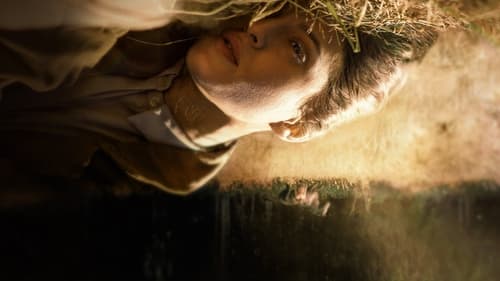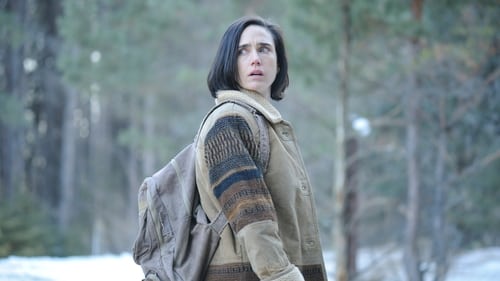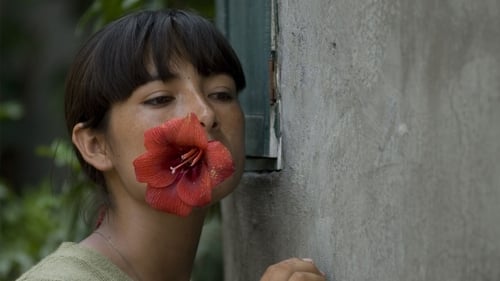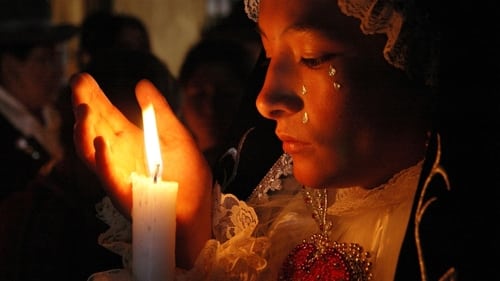Claudia Llosa
Birth : 1976-11-15, Lima, Peru
History
Claudia Llosa Bueno (born 15 November 1976) is a Peruvian film director, writer, producer, and author. She is recognized for her Academy-Award-nominated film The Milk of Sorrow.

Writer
A woman named Amanda lies stricken, far from home. A young boy named David questions her, trying to make her remember. She's not his mother, he's not her son. As her time is running out, he helps her unravel a powerful, haunting story of obsessive jealousy, an invisible danger, and the power of a mother's love for her child.

Director
A woman named Amanda lies stricken, far from home. A young boy named David questions her, trying to make her remember. She's not his mother, he's not her son. As her time is running out, he helps her unravel a powerful, haunting story of obsessive jealousy, an invisible danger, and the power of a mother's love for her child.

Writer
As we follow a mother and her son, we delve into a past marred by an accident that tears them apart. She will become a renowned artist and healer, and he will grow into his own and a peculiar falconer who bears the marks of a double absence. In the present, a young journalist will bring about an encounter between the two that puts the very meaning of life and art into question, so that we may contemplate the possibility of living life to its fullest, despite the uncertainties littering our paths.

Director
As we follow a mother and her son, we delve into a past marred by an accident that tears them apart. She will become a renowned artist and healer, and he will grow into his own and a peculiar falconer who bears the marks of a double absence. In the present, a young journalist will bring about an encounter between the two that puts the very meaning of life and art into question, so that we may contemplate the possibility of living life to its fullest, despite the uncertainties littering our paths.

Screenplay
This short tells the story about the existing boundary between what is masculine and feminine in the Peruvian LGBT community.

Director
This short tells the story about the existing boundary between what is masculine and feminine in the Peruvian LGBT community.

Producer
Fausta is suffering from a rare disease called the Milk of Sorrow, which is transmitted through the breast milk of pregnant women who were abused or raped during or soon after pregnancy. While living in constant fear and confusion due to this disease, she must face the sudden death of her mother. She chooses to take drastic measures to not follow in her mother's footsteps.

Screenplay
Fausta is suffering from a rare disease called the Milk of Sorrow, which is transmitted through the breast milk of pregnant women who were abused or raped during or soon after pregnancy. While living in constant fear and confusion due to this disease, she must face the sudden death of her mother. She chooses to take drastic measures to not follow in her mother's footsteps.

Director
Fausta is suffering from a rare disease called the Milk of Sorrow, which is transmitted through the breast milk of pregnant women who were abused or raped during or soon after pregnancy. While living in constant fear and confusion due to this disease, she must face the sudden death of her mother. She chooses to take drastic measures to not follow in her mother's footsteps.

Producer
Madeinusa is a girl who lives in an isolated village in the mountains of Peru. This strange place is characterized by its religious fervor, and seemingly odd custom: from Good Friday at three o’clock in the afternoon to Easter Sunday, the whole village can do whatever it feels like.

Writer
Madeinusa is a girl who lives in an isolated village in the mountains of Peru. This strange place is characterized by its religious fervor, and seemingly odd custom: from Good Friday at three o’clock in the afternoon to Easter Sunday, the whole village can do whatever it feels like.

Director
Madeinusa is a girl who lives in an isolated village in the mountains of Peru. This strange place is characterized by its religious fervor, and seemingly odd custom: from Good Friday at three o’clock in the afternoon to Easter Sunday, the whole village can do whatever it feels like.










